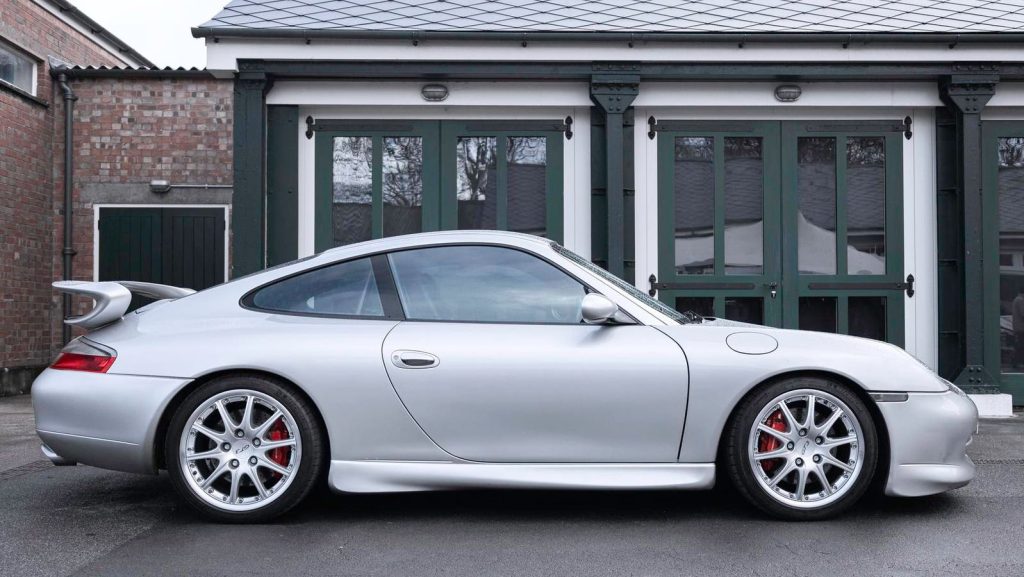Now that the automotive business is finally settling back down to its pre-pandemic behavior after an extended period of slim supplies and exaggerated transaction prices, new-vehicle shoppers can likewise get back to the essentials in carefully choosing a type, make and model that best meets their needs and budgets—and holds its value over time. Below are some of the best bets in the latter category, according to a just-released study of depreciation rates among 1.1 million vehicles that changed hands over the past year, conducted by the online auto marketplace iSeeCars.com.
Even in the best of financial times, choosing what for most consumers is the second largest purchase they’ll ever make, next to a home, is a financially critical decision. A given ride on a dealer’s lot may seem like a true bargain, but can prove to be an ongoing drain on one’s wallet if it costs more to finance, fuel, insure, maintain and repair than others in its class.
Shopping around for the lowest interest rates and choosing a vehicle that’s inherently cheaper to run over time can go a long way toward easing the sticker shock among new cars, trucks and SUVs that command average transaction prices that now approach $49,000. But perhaps the best way to ensure a maximum return for one’s automotive investment is to choose a model that depreciates the least over time.
Depreciation is the difference between what a car, truck or SUV commands when new and what it is expected to be worth down the road. Choosing a model that brings a greater rate of return means having more cash in hand at trade-in time to either pocket or use as all or part of the down payment on a new model.
Resale value is an especially important consideration for those shopping among costlier upscale rides, simply because there’s more money at stake to lose. It’s also a critical factor for those leasing rather than buying and financing a vehicle outright, as the transaction costs are largely based on the difference between the initial transaction price and what it’s expected to be worth on the wholesale market at the end of the term.
Determining what a given model will be worth several years into the future depends on a plethora of factors. These include local supply and demand issues, and the cost of dealer discounts and automakers’ incentives being offered on a particular model. A double-digit difference in resale values can translate into thousands of dollars in market value gained or lost after five years.
According to the iSeeCars.com study, the average new vehicle in 2023 can be expected to lose 38.8% of its initial worth after five years. That’s around $3,790 annually. Trucks are predicted to lose just 34.8% of their original sticker prices, followed by hybrids at an average 37.4%. Sports cars, small SUVs and economy minded cars likewise fare well in terms of their projected resale values.
The big losers here, according to the website, are full-electric vehicles that are predicted to drop in value by 49.1% after a half decade. High-priced luxury sedans and SUVs can likewise be expected to take a heavy hit at resale time.
“The disparity between electric vehicles and hybrids is worth noting, with EVs the worst group at holding their value and hybrids among the best,” said Brauer. “Some manufacturers have reduced or even abandoned the hybrid market in favor of EVs, but these figures suggest consumers still appreciate a hybrid’s combination of higher fuel efficiency and zero range anxiety.”
Below are the 15 current models iSeeCars.com predicts will bring the highest rates of return after five years, with the average loss in original value noted as both a percentage and dollars lost; we’ll look at the 15 vehicles projected to suffer the biggest anticipated drops in value in a subsequent post:
- Porsche 911 Coupe: -9.3% ($18,094)
- Porsche 718 Cayman: -17.6% ($13,372)
- Toyota Tacoma: -20.4% ($8,359)
- Jeep Wrangler/Wrangler Unlimited: -20.8% ($8,951)
- Honda Civic: -21.5% ($5,817)
- Subaru BRZ: -23.4% ($8,114)
- Chevrolet Camaro: -24.2% ($10,161)
- Toyota C-HR: -24.4% ($6,692)
- Subaru Crosstrek: -24.5% ($7,214)
- Toyota Corolla: -24.5% ($5,800)
- Ford Mustang: -24.5% ($10,035)
- Porsche 718 Boxster: -25.1% ($20,216)
- Toyota Tundra: -25.3% ($12,588)
- Kia Rio 5-door: -25.8% ($5,006)
- Porsche 911 Convertible: -26.0% ($42,227)
Source: iSeeCars.com. The full study, including by-segment results, can be found here.
Read the full article here
